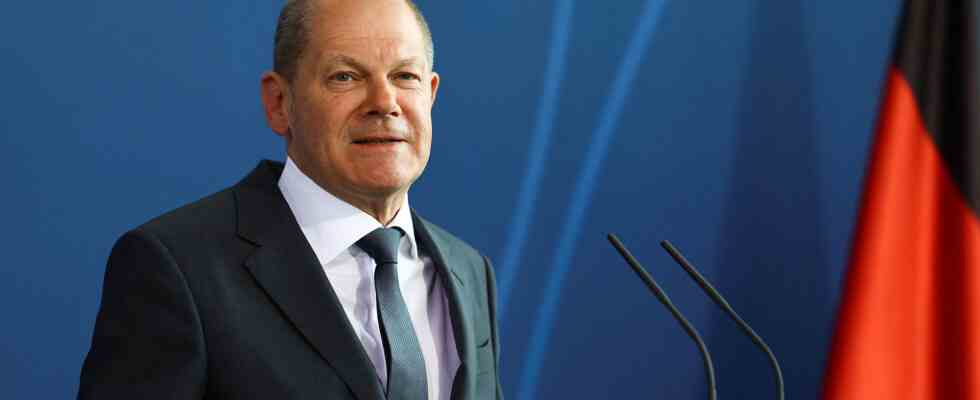comment
Status: 04/20/2022 4:25 p.m
Instead of expressing himself clearly, Chancellor Scholz persistently strings together subordinate clauses in the debate about arms deliveries to Ukraine and consistently avoids answers. There’s method.
Desperation sets in as you listen. Then fatigue. The Chancellor’s numerous subordinate clauses seem like smokescreens. After almost a quarter of an hour’s presentation, a journalist asks: is Germany now supplying heavy weapons or not? It’s war – and the chancellor is difficult to understand. Olaf Scholz needs to communicate better. Just now.
Scholz couldn’t or didn’t want to
A pandemic and at the same time a war in Europe: Rarely has a federal government been challenged in such a way. Rarely has the desire for clarity been greater. Can the chancellor speak plain language? Can he “Strongspeak”? Yes he can. Anyone who has seen him on the campaign stage knows that. But yesterday he couldn’t – or didn’t want to – once again. Despite the pressure he is under from the ongoing heavy arms debate for Ukraine.
Even Angela Merkel was not a gifted speaker. She, too, rustled speech notes. And yet the “Scholz method” is different.
First: Subordinate clauses as smoke-screen clauses. Instead of saying: Ukrainian soldiers are best at handling Eastern European war material, there is a sentence with seven subordinate clauses. Literally: “That’s why it’s no coincidence that everyone came to the same conclusion that it makes the most sense (…)” – and so on.
Basic explanations instead of answers
Second: answer avoidance. Anyone who asks the chancellor about concrete plans for an oil and gas embargo will get basic explanations about Germany’s future energy independence, but no answer to the question. Quote: “How quickly we can finish it, let’s say when we’ve done it.”
Third: His choice of words feigns clarity when there is none. Formulations such as “everyone knows” or “it’s clear” suggest unambiguity, which is followed by at least ambiguity in terms of content. So his answer to the question about heavy weapons is nebulous in the end: It’s about weapons with “considerable impact” and – also literally: “Within this framework we are ready to make things possible”. Aha.
Scholz can be condescending
Finally: Scholz comments on questions in an irritating way. They are then “entitled” – or not. There is condescension in it from someone who knows better. Yesterday he thanked me again for a question: He had been waiting for this opportunity for an explanation for some time. Does the chancellor really need a key word for this?
There is no final certainty in times of war. Responses to the Russian raid can and will change. But the “Scholz method” has something of cotton candy: voluminous, but not very nutritious.
Comment: It’s war – and the chancellor is difficult to understand
Kai Clement, ARD Berlin, April 20, 2022 4:02 p.m
Editorial note
Comments always reflect the opinion of the respective author and not that of the editors.

